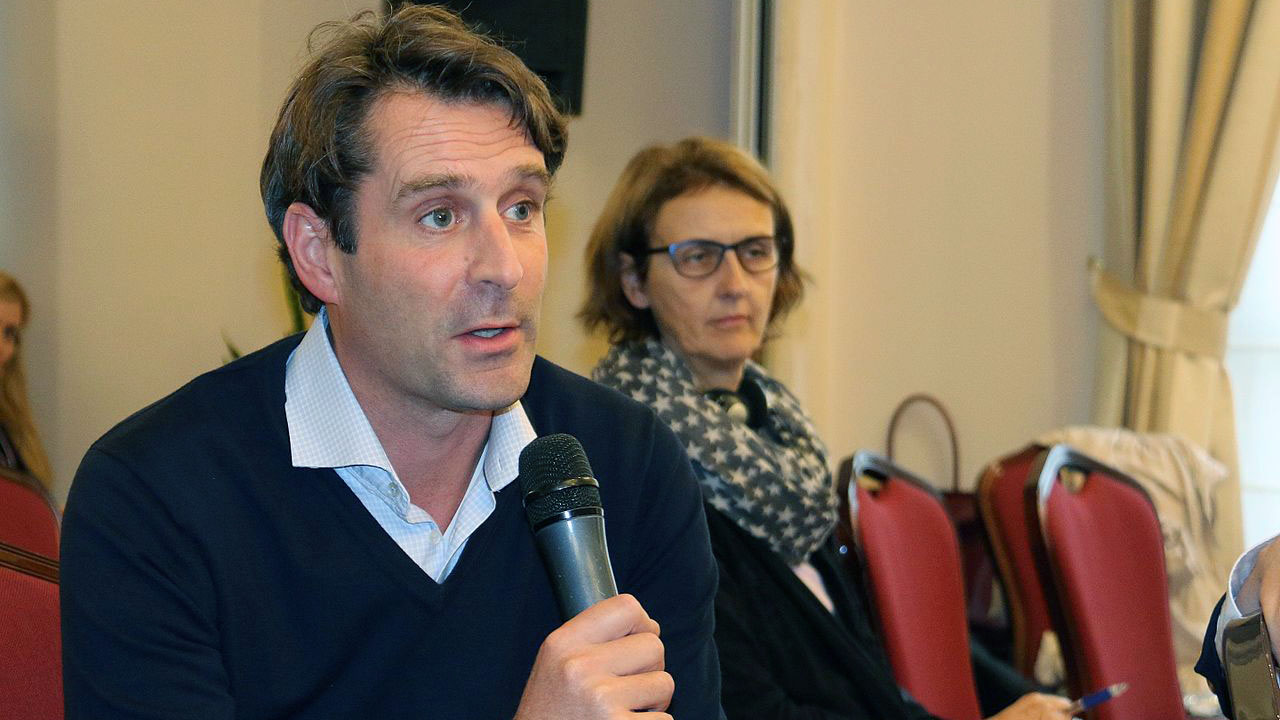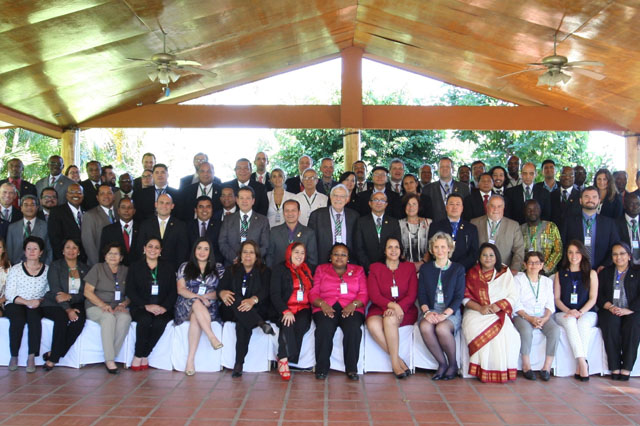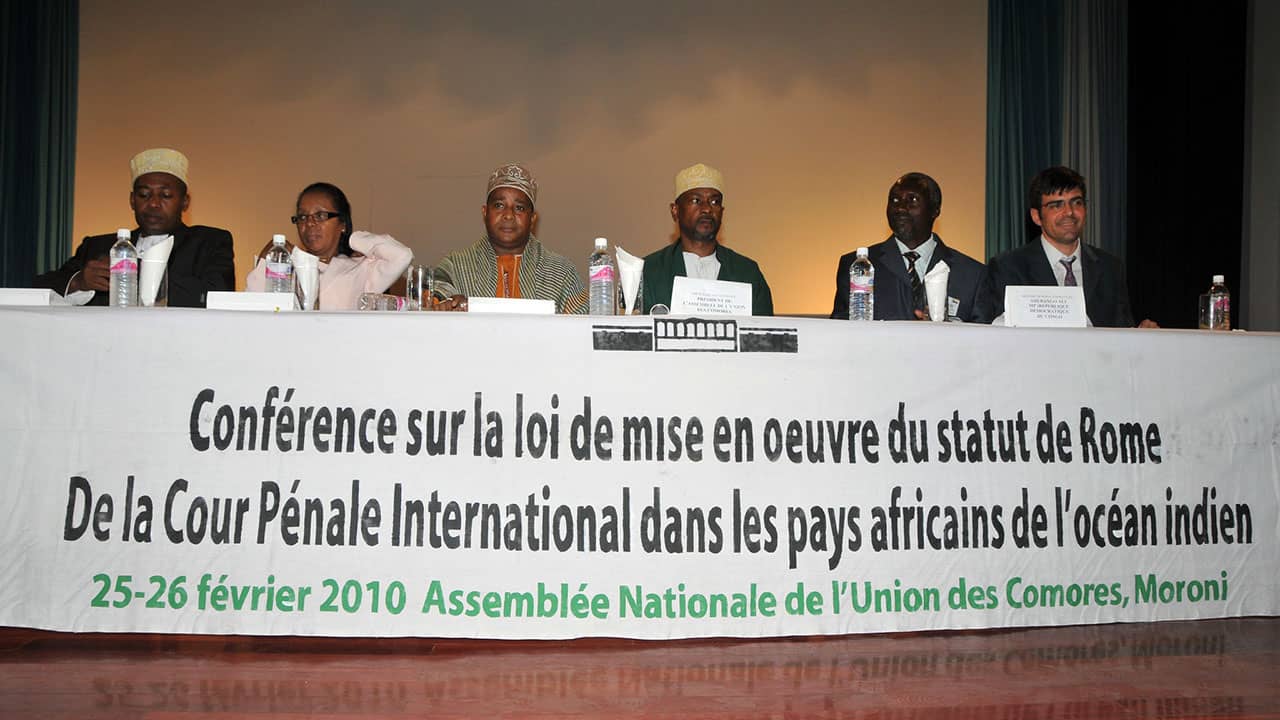Djibouti having ratified the Rome Statute on 5 November 2002, PGA is mobilised for the full implementation in its national legislation, in particular through amending the Penal Code. Since 2010 and the participation of a government official at a PGA event, PGA intensified its collaboration with the Parliament of Djibouti.
Rome Statute
Djibouti signed the Rome Statute on 7 October 1998 and ratified it on 5 November 2002.
Kampala Amendments of 2010
Djibouti has not ratified the Kampala Amendments on the Crime of Aggression, however it attended the Review Conference and joined the consensus to adopt the two Kampala Amendments.
Status on Domestic Implementation of the Rome Statute
Djibouti has neither drafted nor enacted legislation implementing the Rome Statute or legislation on cooperation with the ICC. The Djiboutian penal codes need some revisions to meet the standards as set under the Rome Statute. In 2007, an inter-ministerial committee, responsible for the implementation of international treaties into national law, established a work-schedule over 3 years to complete a new formulation of the penal codes until the end of 2011.
Agreement on Privileges and Immunities of the Court (APIC)
Djibouti has not signed the APIC.
Additional Agreements
Djibouti signed a Bilateral Immunity Agreement on 24 January 2003, which entered into force on 2 July 2003, with the United States regarding the surrender of persons to the ICC. However, this agreement has not been ratified by the Parliament of Djibouti.
Progress and PGA Action
Since February 2010, when the Secretary General of the Ministry of Justice of Djibouti attended the PGA Conference on ICC implementing legislation in African Indian Ocean countries in Comoros, PGA has intensified its cooperation with the Djiboutian Parliament.
PGA planned to organise a capacity building seminar of parliamentarians on the ICC and the Rule of Law in Djibouti first in 2012 and then again in 2013 on the Rule of Law and the Implementation of International Legal Standards in National Law, where the work progress of the implementation of the Rome Statute would be among the topics discussed in order to give new impetus to this ongoing process. Due to lack of political will within the National Parliament, both attempts have been postponed until further notice. PGA will continue its relentless efforts to create such a political will in order to advance the prospect of implementation.
other Relevant Information
In both 1st and 2nd cycle of its Universal Periodic Review before the Human Rights Council, Djibouti did not receive International Criminal Court related recommendations. Djibouti’s next UPR is scheduled in January 2018.
As a member of the African, Caribbean and Pacific community (ACP), and as signatory of the revised Cotonou Agreement with of the ACP and European Union, Senegal has recognized the importance of the ICC as a mechanism for peace and international justice, and has committed to promote the ratification and implementation of the Rome Statute, to seek to take steps towards the ratification and the implementation of the Rome Some Statute, and to fight against international crime giving due regard to the Rome Statute. For more information on the work of PGA within the ACP-EU mechanism. See PGA work through the ACP-EU Joint Parliamentary Assembly.








